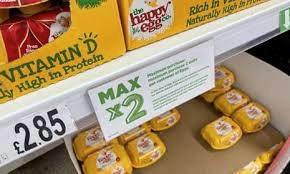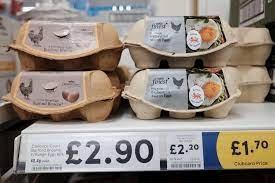 Previously, EGG-NEWS commented on a shortage of table eggs in some U.K. supermarkets. This is due, in part, to depletion of approximately 750,000 laying hens as a result of Highly Pathogenic Avian Influenza but is also due to numerous farmers ceasing production.
Previously, EGG-NEWS commented on a shortage of table eggs in some U.K. supermarkets. This is due, in part, to depletion of approximately 750,000 laying hens as a result of Highly Pathogenic Avian Influenza but is also due to numerous farmers ceasing production.
The U.K. industry is fragmented with individual farmers selling eggs to packers who in turn distribute to supermarket chains. The segment most affected are producers of free-range eggs, representing 70 percent of supply in the U.K. Independent farmers have endured a 90 percent escalation in the cost of feed since 2019 in addition to the recent doubling in the price of fuel and electric power. The British Free-Range Egg Producers Association calculates a current production cost of $1.66 per dozen nest-run (U.S. equivalent from all systems $0.80). Packers are paying $1.35, although 35 percent more than in 2019 while retail prices range from $2.65 to $5.00.
Free-range eggs are in short supply in the E.U. and supermarkets must rely on either available domestic free-range eggs or to import aviary or barn eggs.
 Supermarkets that control prices paid to packers and hence, producers, are reluctant to either increase shelf price or to reduce margins, creating an impasse. A short-term approach by three major supermarkets has been to provide one-time grants to farmers to support production. The solution to the problem is to provide farmers with a realistic price for their product, given escalation in feed, utility and labor costs. This ultimately must be passed onto the consumer as in the U.S.
Supermarkets that control prices paid to packers and hence, producers, are reluctant to either increase shelf price or to reduce margins, creating an impasse. A short-term approach by three major supermarkets has been to provide one-time grants to farmers to support production. The solution to the problem is to provide farmers with a realistic price for their product, given escalation in feed, utility and labor costs. This ultimately must be passed onto the consumer as in the U.S.